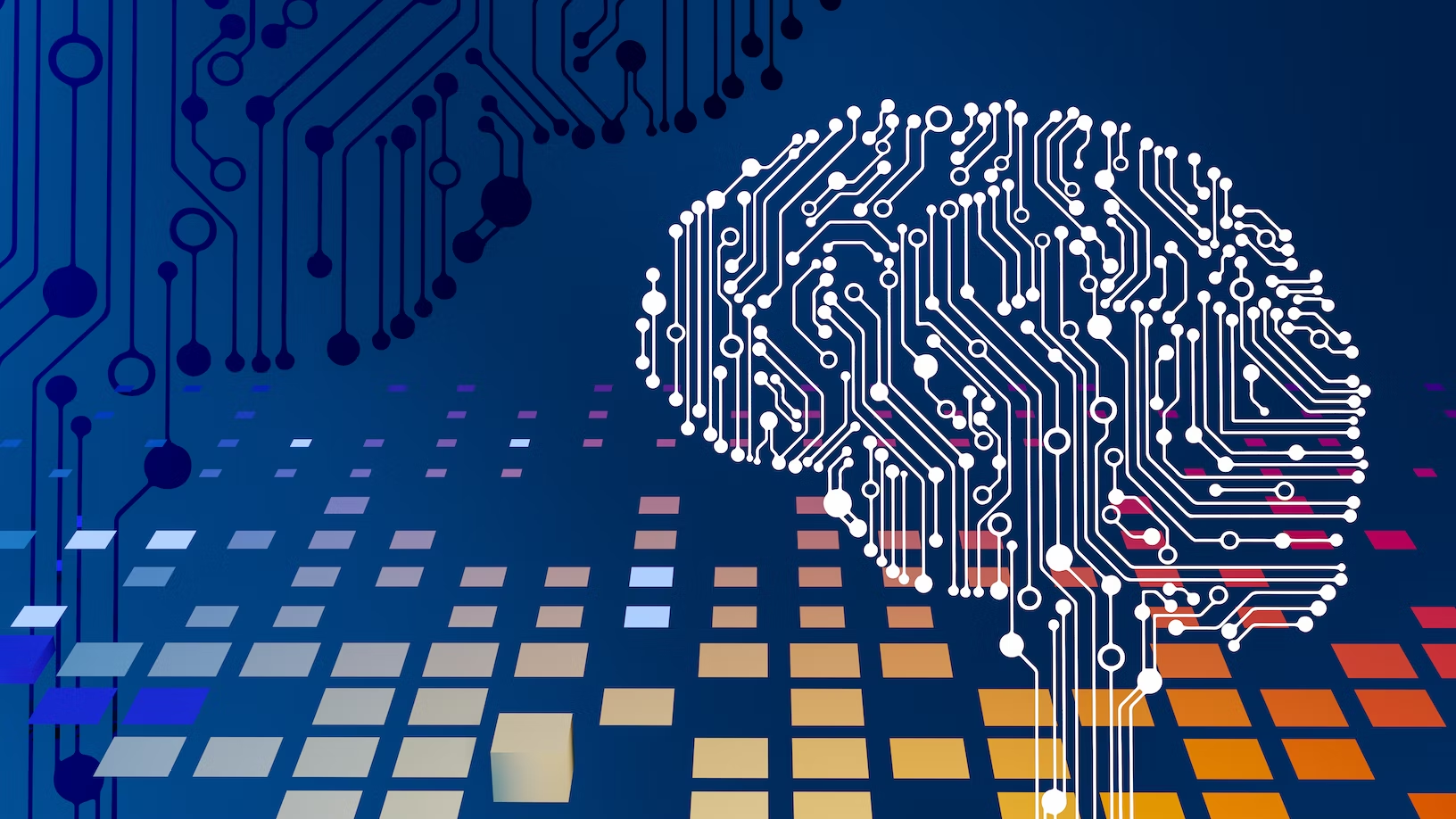In today’s digital age, cybersecurity and online privacy are critical concerns. With the proliferation of data breaches, cyberattacks, and privacy violations, securing our online presence and protecting sensitive information is more critical than ever. One emerging technology that shows promise in this area is artificial intelligence (AI). AI is increasingly used in cybersecurity and privacy applications to identify and mitigate threats, detect vulnerabilities, and improve incident response times. In this blog post, we’ll explore the role of AI in cybersecurity and online privacy and how it’s shaping the future of digital security.
Introduction to AI and Cybersecurity: An Overview of the Problem

As the world becomes increasingly digitized, cyber threats continue to grow in complexity and frequency. This is where artificial intelligence (AI) is essential in improving cybersecurity and protecting online privacy. In this section, we will provide an overview of the challenges posed by cyber-attacks, the role of AI in detecting and preventing them, and the potential benefits and risks of using AI in cybersecurity. We will also discuss some key technologies and tools being developed to combat cyber threats, such as machine learning algorithms, neural networks, and natural language processing. Finally, we will examine the role of government regulations and policies in shaping the future of AI and cybersecurity.
The Advantages of AI in Cybersecurity: How Machine Learning Can Help
The use of artificial intelligence in cybersecurity can offer several advantages. One such advantage is the ability of AI systems to analyze large amounts of data and identify patterns that may not be immediately apparent to humans. This is where machine learning comes in, as it allows AI systems to learn from data and improve their ability to detect potential threats over time. AI can also automate specific security tasks, freeing human analysts to focus on more complex threats.
Another advantage of AI in cybersecurity is the speed at which it can detect and respond to threats. Traditional security systems often rely on human intervention to identify and respond to threats, which can be time-consuming and ineffective. AI can analyze threats in real time and respond much more quickly, potentially stopping attacks before they can cause significant damage. However, it’s important to note that AI systems are not foolproof and can still make mistakes, so human oversight is still necessary.
Overall, the advantages of AI in cybersecurity make it an increasingly important tool in the fight against cyber threats.
This product is a convenient device that allows users to control their TV, set-top box, air conditioner, and other appliances using their mobile phones. With a compact and lightweight design, this remote controller is easy to carry and use. Its simple one-touch setup makes it user-friendly for everyone.

Buy here: One Touch Universal Mobile Phone Remote Controller
mavigadget.com/products/one-touch-universal-mobile-phone-remote-controller/
Threat Detection and Prevention: How AI is Used to Identify Cyber Threats

With the increasing frequency and sophistication of cyber-attacks, more traditional threat detection and prevention methods are required. This is where the role of Artificial Intelligence (AI) comes into play. AI technologies such as Machine Learning and Deep Learning are used to identify and analyze cyber threats in real time. By analyzing large amounts of data, these algorithms can detect patterns and anomalies that would be impossible for humans to spot. This allows for early detection and response to potential threats, reducing the risk of a successful cyber-attack. In addition, AI can also be used to proactively prevent attacks by identifying vulnerabilities in systems and applications before they can be exploited. With the help of AI, organizations can stay one step ahead of cybercriminals and protect their data and assets more effectively.
Malware Detection and Removal: The Role of AI in Protecting Against Malicious Software

Malware, or malicious software, poses a significant threat to the security and privacy of computer systems. Traditional methods of detecting and removing malware can be slow and ineffective, leading to devastating consequences. Fortunately, AI technology has emerged as a powerful tool in the fight against malware. By utilizing machine learning algorithms, AI can detect and remove malware more efficiently and effectively than traditional methods. The use of AI in malware detection and removal is becoming increasingly popular and has proven to be highly effective in protecting against malicious software.
This portable and convenient keyboard can be used with smartphones, tablets, and computers. Its lightweight and slim design makes it easy to carry around and use. Its Bluetooth connectivity allows for easy pairing with devices without cords or cables.

Buy here: Multifunctional Slim Light Mini Bluetooth Keyboard
mavigadget.com/products/multifunctional-slim-light-mini-bluetooth-keyboard/
Using AI to Verify User Identity and Prevent Unauthorized Access
In the age of digital technology, verifying user identity and preventing unauthorized access is a crucial aspects of cybersecurity. Authentication and access control techniques such as passwords, biometrics, and multi-factor authentication have been used to secure data and systems. However, these methods are only sometimes foolproof, and cybercriminals have found ways to bypass them. Artificial intelligence (AI) is now being used to improve authentication and access control. By analyzing user behavior and other factors, AI algorithms can detect and prevent fraudulent activity, reducing the risk of unauthorized access and data breaches.
Privacy Protection: How AI Can Help Keep Personal Data Safe Online

In today’s digital age, personal data has become a valuable commodity. From social media sites to online shopping platforms, companies are collecting vast amounts of personal information from users. However, with the rise of cyber threats and data breaches, protecting personal data has become more critical.
This is where AI comes in. With its advanced algorithms and machine learning capabilities, AI can protect personal data by identifying potential threats and taking proactive measures to prevent unauthorized access. In this chapter, we’ll explore how AI is being used to safeguard our online privacy and keep personal information out of the wrong hands.
Cybersecurity in the Age of IoT: The Role of AI in Securing Connected Devices

As the Internet of Things (IoT) grows, so does the potential for cyber threats. With AI, we can improve the security of connected devices by enabling them to detect and respond to threats in real time. By leveraging machine learning algorithms, we can identify unusual patterns in network traffic and prevent potential attacks. This helps to protect against not only data breaches but also physical harm from compromised devices. As the use of connected devices becomes more pervasive in our daily lives, the need for effective cybersecurity measures only increases, making the role of AI in IoT security increasingly important.
This product is a versatile device that allows you to charge your phone wirelessly while listening to your favorite music. It comes with Bluetooth 5.0 technology and delivers high-quality sound with deep bass. With its built-in microphone and touch control buttons, you can easily take calls and control your music playback. Its sleek and modern design makes it a great addition to any room or office.

Buy here: Smart Aurora Wireless Charger Bluetooth Speaker
mavigadget.com/products/smart-aurora-wireless-charger-bluetooth-speaker/
Limitations and Future Developments: The Potential and Challenges of AI in Cybersecurity

As the use of AI in cybersecurity becomes more prevalent, some limitations and challenges still need to be addressed. One of the main challenges is the need for more transparency and explainability in AI algorithms, making it difficult to understand how decisions are made. Another challenge is the potential for AI to be exploited by malicious actors if not adequately secured.
Despite these challenges, the potential benefits of AI in cybersecurity are significant. With the ability to quickly and accurately detect threats, AI can help organizations stay ahead of the constantly evolving threat landscape. In the future, advancements in AI technology may enable an autonomous response to threats, further enhancing the capabilities of cybersecurity teams.
Overall, the role of AI in cybersecurity is still evolving, and researchers and practitioners need to continue exploring the potential benefits and addressing the challenges to ensure that AI is used responsibly and effectively.




